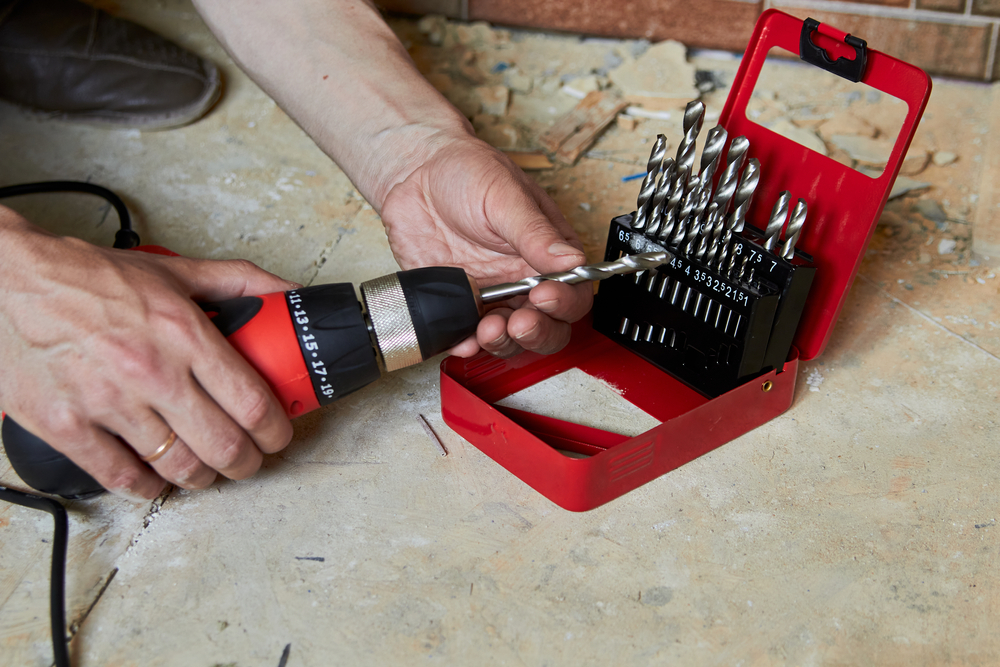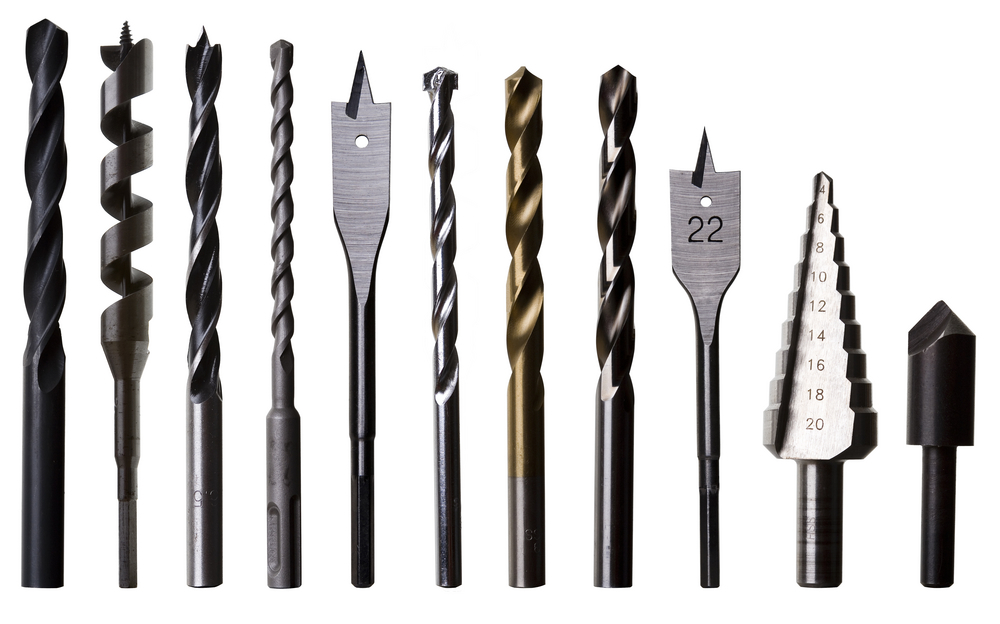Drill bits are essential tools that are used in various drilling applications, from woodworking and metalworking to construction and automotive repair. There are many different types of drill bits available, each with its own unique characteristics and benefits. In this blog post, we will be comparing three popular types of drill bits: black oxide, titanium, and cobalt.
Contents
Black Oxide Drill Bits VS Titanium VS Cobalt

Black Oxide Drill Bits
Black oxide drill bits are made from high speed steel (HSS), which is a type of tool steel that is known for its high hardness and wear resistance. The black oxide finish on these drill bits is created through a chemical process called oxide conversion, which involves reacting the surface of the steel with an oxide-forming solution.
This process results in a thin layer of black oxide on the surface of the drill bit, which provides several benefits.
One of the main benefits of black oxide drill bits is their corrosion resistance. The black oxide finish helps to protect the steel underneath from rust and other types of corrosion, which can significantly extend the lifespan of the drill bit. In addition, black oxide drill bits are generally less expensive than other types of drill bits, making them a cost-effective choice for many drilling applications.
However, black oxide drill bits do have some drawbacks compared to other types of drill bits. For example, they are not as tough or durable as some other types of drill bits, and may not be suitable for heavy-duty drilling applications. In addition, the black oxide finish can wear off over time, exposing the underlying steel to corrosion.
Titanium Drill Bits
Titanium drill bits are made from high speed steel (HSS) that has been coated with a layer of titanium nitride (TiN). This coating is applied through a process called physical vapor deposition (PVD), in which a thin film of titanium nitride is deposited onto the surface of the drill bit. The result is a hard, durable, and corrosion-resistant finish that can significantly extend the lifespan of the drill bit.
One of the main benefits of titanium drill bits is their high strength-to-weight ratio. Titanium is a lightweight and strong metal, so titanium drill bits are able to withstand high levels of torque and pressure without breaking or bending. In addition, titanium drill bits have excellent corrosion resistance, making them ideal for use in damp or humid environments.
However, titanium drill bits do have some drawbacks compared to other types of drill bits. One of the main drawbacks is their higher cost compared to other types of drill bits. In addition, the titanium nitride coating can wear off over time, exposing the underlying steel to corrosion.
Cobalt Drill Bits
Cobalt drill bits are made from high speed steel (HSS) that has been infused with a small amount of cobalt. This infusion of cobalt gives the drill bits additional toughness and heat resistance, making them ideal for heavy-duty drilling applications and materials that generate a lot of heat during drilling.
One of the main benefits of cobalt drill bits is their exceptional heat resistance. The cobalt infusion helps to prevent the drill bit from overheating and losing its sharpness, allowing it to maintain its cutting edge for longer periods of time. In addition, cobalt drill bits are highly resistant to wear and tear, making them ideal for use in demanding drilling applications.
However, cobalt drill bits do have some drawbacks compared to other types of drill bits. One of the main drawbacks is their higher cost compared to other types of drill bits. In addition, cobalt drill bits may not be as corrosion-resistant.
FAQs on Black Oxide Drill Bits VS Titanium VS Cobalt
What are black oxide drill bits made of?
Black oxide drill bits are made of high speed steel (HSS), which is a type of tool steel known for its high hardness and wear resistance. The surface of the drill bit is coated with a thin layer of black oxide, which is created through a chemical process called oxide conversion.
What are the benefits of black oxide drill bits?
Black oxide drill bits are known for their corrosion resistance, low cost, and general versatility. They can be used for a wide range of drilling applications and work well on a variety of materials, including wood, metal, and plastic.
What are the drawbacks of black oxide drill bits?
One potential drawback of black oxide drill bits is their limited toughness and durability compared to other types of drill bits. They may not be suitable for heavy-duty drilling applications or materials that are especially hard or abrasive. In addition, the black oxide finish can wear off over time, exposing the underlying steel to corrosion.
What are titanium drill bits made of?
Titanium drill bits are made of high speed steel (HSS) that has been coated with a layer of titanium nitride (TiN). The titanium nitride coating is applied through a process called physical vapor deposition (PVD), in which a thin film of titanium nitride is deposited onto the surface of the drill bit.
What are the benefits of titanium drill bits?
Titanium drill bits are known for their high strength-to-weight ratio, excellent corrosion resistance, and durability. They are able to withstand high levels of torque and pressure without breaking or bending, and are ideal for use in damp or humid environments.
What are the drawbacks of titanium drill bits?
One potential drawback of titanium drill bits is their higher cost compared to other types of drill bits. In addition, the titanium nitride coating can wear off over time, exposing the underlying steel to corrosion.
What are cobalt drill bits made of?
Cobalt drill bits are made of high speed steel (HSS) that has been infused with a small amount of cobalt. The cobalt infusion gives the drill bits additional toughness and heat resistance, making them ideal for heavy-duty drilling applications and materials that generate a lot of heat during drilling.
What are the benefits of cobalt drill bits?
Cobalt drill bits are known for their exceptional heat resistance and ability to maintain their sharpness for longer periods of time. They are highly resistant to wear and tear, making them ideal for use in demanding drilling applications.
What are the drawbacks of cobalt drill bits?
One potential drawback of cobalt drill bits is their higher cost compared to other types of drill bits. In addition, cobalt drill bits may not be as corrosion-resistant as some other types of drill bits. They may also be more prone to breaking or snapping if subjected to excessive torque or pressure.


4 thoughts on “Black Oxide Drill Bits VS Titanium VS Cobalt | Detail Comparison”